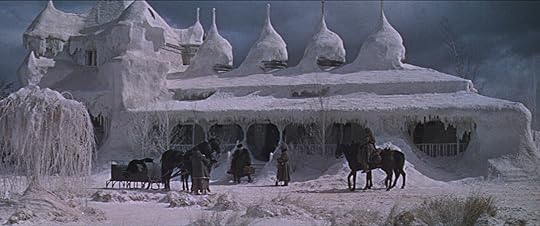An Entertaining Page Turner
This book is truly an entertaining page turner. It offers a good dose of melodrama that keeps the readers engaged from start to finish. The dialogue is particularly well-written, especially the exchanges between Yurii and Lara. Their conversations are filled with depth and emotion, adding an extra layer of authenticity to the story.
However, one cannot ignore the fact that there are way too many similes in the text. While similes can enhance the description and make the writing more vivid, an overabundance of them can sometimes become distracting and take away from the overall impact of the story.
The conclusion and epilogue, unfortunately, seem to drag a bit. They feel a bit superfluous and could have been more concise. Despite these minor flaws, the book still manages to earn a rating of three and a half stars.
Overall, it is a great read that I would highly recommend. I am now looking forward to seeing the movie adaptation to see how the story comes to life on the big screen.















